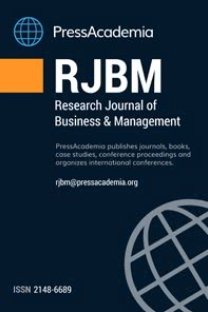ECONOMIC CHALLENGES OF DRUG POLICY IN GEORGIA
Purpose - Georgian drug policy in last dacades can be charachterized as a strong prohibitive policy. Application of restrictive sanctions are accompanied by imprisonment or monetary fines. Punishment policy is an economic incentive which aimes to reduce the level of drug use and the harm caused by it.
In this paper, we examine how the drug market responds to restrictive policies. We analyze government supported incentives for 20 years and their impact on drug distribution. Our analysis shows that such a policy does not lead to the reduction in consumption. Baning certain types of drugs causes the demand to responds by switching to alternative substances. Thus in this article, we examine how the drug market responds to prohibitive policies and explain why there is no effect on the level of drug demand during observed period.
Methodology - The article reviews the current situation on the Georgian drug market in light of the economic forces operating there. The work mainly uses review approach. It combines various research findings that have been done over the last 20 years. Changes in drug demand and supply are presented as economic models.
Findings- Research findings show that drug circulation, like any other goods and services, is managed by the principles of economics and the market. In addition to the usual supply and demand that determines the price and quantity of drugs on the black market, it also responds instantly to incentives, including prohibitions and sanctions. Comparative analyses of the secondary data show decreased effectiveness of the Ministry of Internal Affairs while the incidence and prevalence of intravenous users are increasing. The decreased presure from the law enforcements may explain the increased demand on heroin and subotoxin, as well as on hallucinogens and new psychoactive substances in contemporary days.
Conclusion- Drug policy in Georgia, which is based on prohibitive approach is ineffective. The volume of drugs available on the market is determined by the increasing demand in recent years. Steps to reduce supply are forcing suppliers and consumers to look for efficient and safe ways to meet their needs.
Keywords: Illicit drugs, prohibition, drugpolicy, decriminalization, substances
Keywords:
Illicit drugs, prohibition, drugpolicy decriminalization, substances,
___
- Bergen-Cico, D., Otiashvili, D., Kirtadze, I., Zebransky, T., & Tsertsvadze, V. (2017). Cost analysis of Georgia's street level drug testing policy. Journal of Drug Policy Analysis 10 (2) , p. 1-22.
- BPU, BP, & CIF, CI (2015). Population Size Estimation of People Who Inject Drugs in Georgia 2014. Tbilisi: CIF, p. 1-51
- BPU, BP, & CIF, CI (2017). Population Size Estimation of People Who Inject Drugs in Georgia 2016. Tbilisi: CIF. p. 1-54
- Curatio, International Foundation; Bemoni, Public Union. (2009). Bio-behavioral surveillance surveys among injecting drug users in Georgia (Tbilisi, Batumi, Zugdidi, Telavi, Gori, 2008 - 2009). study report. Tbilisi: CIF p. 1-160.
- Curatio, International Foundation; Bemoni, Public Union. (2013). HIV risk and prevention behaviors among People who inject drugs in six cities of Georgia Bio-behavioral surveillance survey in Tbilisi, Batumi, Zugdidi, Telavi, Gori, Kutaisi in 2012. Tbilisi: CIF, p.1-130.
- Curatio, International Foundation; Bemoni, Public Union. (2015). HIV risk and prevention behaviors among People Who Inject Drugs in seven cities of Georgia. Bio-Behavioral Surveillance Survey in seven cities of Georgia. Tbilisi: CIF p.1-58.
- Curatio, International Foundation; Bemoni, Public Union. (2017). HIV Risk and Prevention Behaviors Among People Who Inject Drugs in Seven Cities of Georgia Integrated Bio-Behavioral Surveillance Survey in seven cities of Georgia. Tbilisi: CIF p.1-156.
- Khurtsia, L., & Tsertsvadze, V. (2015). Drugs, Silk Road, Bitcoins. World Academy of Science, Engineering and Technology, International Science Index, Economics and Management Engineering (pp. 9 (7), 1529). Istanbul: WASET.
- Otiashvili, D., Kirtadze, I., Tsertsvadze, V., Chavchanidze, M., & Zabransky, T. (2012). How Effective Is Street Drug Testing. Tbilisi: Alternative Georgia. Tbilisi: altgeorgia, p. 1-39.
- Sirbiladze, T. (2010). Estimating the prevalence of injecting drug use in Georgia: Consensus report. Tbilisi: Bemoni Public Union, p. 1-90.
- Sirbiladze, T. (2013). Estimating the prevalence of injecting drug use in Georgia: Consensus report. GFATM, p. 1-91.
- Alavidze, S., Balanchivadze, N., Batselashvili, L., Duchidze, N., Javakhishvili, J., Kikvidze, T., Tsertsvadze, V. (2015). Drug Situation in Georgia. Annual Report 2013. Tbilisi: Alternative Georgia, p.1-44
- Alavidze, S., Duchidze, N., Kirtadze, I., Otiashvili, D., Razmadze, M., Sturua, L., Javakhishvili, J. (2016). Drug Situation in Georgia. Tbilisi: Alternative Georgia, p.1-44.
- Burchuladze, n. (06 06 2011). Poppy Case. The Kviris Palitra magazine. p. 11.
- The Parliament of Georgia. (22/05/2012). The Law of Georgia on Narcotic Drugs, Psychotropic Substances and Precursors, and Narcological Assistance. Tbilisi: Legislative Herald of Georgia, p. 1-20.
- Javakhishvili, J., Balanchivadze, N., Kirtadze, I., Sturua, L., Otiashvili, D., & Zabrasnicki, T., (2012). Drug Situation in Georgia. Tbilisi: Alternative Georgia, p. 1-24.
- Yayın Aralığı: Yılda 4 Sayı
- Başlangıç: 2014
- Yayıncı: PressAcademia
